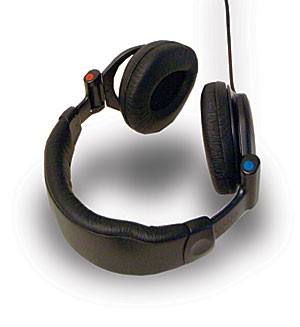You know that whole Napster thing? Yeah, well, it’s not over yet.
File sharing and digital music is back at the forefront of entertainment news after a recent spike in legal activity from the Recording Industry Association of America. If forking over 99 cents a song for iTunes, working around DRM blocks, and recovering from spyware that companies like Sony BMG have hidden on CDs wasn’t hard enough, the RIAA has been busy making everything worse by finding new ways to limit and restrict the flow of media across the Internet.
Recently the RIAA has released an avalanche of lawsuits targeting users on college networks as well as increasing royalties on Internet radio so drastically, a majority of stations will most likely go bankrupt within the next few months.
Last Friday the RIAA President Cary Sherman and Dan Glickman of the MPAA sent a mass e-mail to the presidents of 40 different universities. The message called for universities to help the RIAA to “”…continue to pursue a comprehensive approach to addressing piracy on college campuses.”” When contacted, President Robert Shelton’s office could not confirm nor deny receiving the message.
This “”comprehensive approach”” now includes circumventing the legal-system, as the RIAA has resorted to using threats of lawsuits in accusations of copyright infringement. Instead of finding subpoenas, people accused of piracy have found notices that threaten legal action if they don’t pay up. Nearly 14,500 notices have been sent to colleges across the country during the 2006-2007 school year, three times the amount sent during 2005-2006.
According to Dan Lee, copyright librarian for the UA, this year the university has remained clean. “”The content owner usually has a standard message they send identifying the network and IP address. So far no one (from the UA) has received a notice,”” Lee said.
The UA takes copyright accusations on a case-by-case basis. Other schools have been quick to turn over batches of names to the RIAA even without threat of subpoena.
“”They have to make a legitimate case to the network provider. However, if they have a subpoena we legally have to pass it on,”” said Lee.
Piracy notices have been so broad in range, they’ve been sent to toddlers, pets and even a man in Michigan named John Paladuk – except Paladuk lived in Flordia and was disabled from a stroke at the time he was allegedly commiting piracy. In February the RIAA followed through, issuing him a subpoena.
Certain universities have countered, refusing to give names back to the RIAA after blanket accusations. North Carolina State University responded by encouraging students to use the university’s legal service to fight back.
Other schools however have been quick to capitulate. Classes at Michigan State University have required students to watch a video called “”Campus Downloading,”” which reeks of the hip, down-to-earth-ness usually reserved for after-school specials.
Arizona State University hopped on the bandwagon as well, inviting the RIAA’s Vice-President of Technology, David Hughes, to an “”open discussion”” in March. Hughes became testy and used profanity when a group of demonstrators came in with signs promoting music file-sharing and denouncing the RIAA.
In response to a comment promoting usage of file-sharing programs, Hughes dramatically replied, “”Tell that to the guy who can’t feed his kids.””
In addition to file sharing, Internet radio stations like UA’s KAMP student radio, are a thorn in the side of the RIAA’s controlling market share. The stations require small budgets to operate and are able to reach a broad audience and have little over-head in deciding what music to play.
Recently the federal government has approved an RIAA-led hike in royalties for songs broadcast on the Internet. The fee goes into effect May 16th and charges the stations a per-listener fee – a scenario broadcast radio doesn’t have to worry about.
“”The effect on KAMP is that we will have a lot less money for equipment and stuff like our mobile DJ services,”” said KAMP engineering director Matt Brailey, a media arts senior.
Almost all Internet radio is coordinated through a company called Sound Exchange, which handles royalties. “”There’s really no way around it,”” Brailey said. “”We have to submit to Sound Exchange.””
One of the issues the RIAA has is that small independently operated Internet radio stations are outside the range of the RIAA’s influence, unlike big market broadcast radio. The labels and artists the RIAA represents tend to get less exposure on Internet radio. Opponents to the royalty hike believe the RIAA is not out to get royalties, but blatantly destroy Internet radio.
Stations, however, are defiant. “”We’re keeping the stream going. It’s gonna be pretty hard to stop us,”” Brailey said.
The RIAA’s tactic is to identify piracy as theft and relate activities like file sharing to physically stealing CDs from stores, claiming the real person being robbed is the artist. This ignores the fact that most of the money doesn’t go to the artist and lands in the record label’s hands, courtesy of artists being exploited by unbalanced contracts. If anybody really wants to point fingers, that’s where the real robbery is.
Students at the UA have been caught before. “”In spring of 2004 there were three or four people who got in trouble at the university. It’s something we want to avoid but it happens,”” Lee said.
Downloading music is still dangerous, and avoiding using the UA’s network is beneficial for both students and the school. The RIAA more than anything else is looking to serve as an example, and college campuses provide the perfect forum. Making a choice between using file-sharing programs and abiding by the law can be tough for our generation, however the to choice download on campus networks is a easy “”no.””









